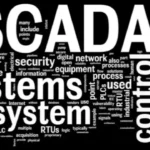Gone are the days when internet service providers were solely dependent on copper cables, now everyone goes for the fiber optic connection when it comes to internet connectivity. And there is a good reason for that. You see, fiber optic cable is better in every way than its older counterparts like copper cables. You may know that fiber optic cables are better at sending large amounts of data with incredible speed, but what are some of the other advantages that such cables are known for? Or are there any disadvantages to using fiber optic cable? Well, if you are wondering about all of that too, then keep on reading today’s post because we are about to dive deep into the advantages and disadvantages of fiber optic cable. So yeah, you may wanna stick a bit longer with us for that. Let’s get down to it then. Shall we?
What Is Fiber Optic Cable?

It is like a super-speedy, super-advanced network cable. This ain’t your grandpa’s old-school electrical communication cable, no sir. It’s packing a powerful punch with lightning-fast data transmission rates that leave the old wires in the dust in terms of data transfer comparison. Now, how does it pull off this digital magic, you ask? Well, instead of electricity, it uses pulses of light to shoot data down the line. Imagine data zipping along on beams of light. Sounds like science fiction, right? But it’s not. This high-tech light show lets it handle faster speeds and higher bandwidths. There’s not just one type of fiber optic cable, though. You’ve got your single-mode fiber optic cable, your multimode optical fiber, and your plastic optical fiber (POF). Each one has its own unique qualities and uses, but all of them are part of the same cool club of using light to send data flying.
Advantages Of Fiber Optic Cable:
There is a reason why so many people prefer fiber optic cable over the generic cable for data transmission. Actually, it is not just one reason, there are plenty in favor of fiber optic cable. And here are the most prominent ones:
1. Speed And Bandwidth: First up, let’s talk about the need for speed and vast bandwidth. As our digital appetite grows, fiber optic cables are ready to serve up data at super-fast speeds and in ginormous quantities. Whether you’re trying to catch the latest episode of your favorite series or a data center crunching through terabytes of info, fiber optic cables can handle it all in a blink.
2. Incredible Data Transmission: While your average copper cables need a power nap after just a couple of kilometers, fiber optic cables are like data marathon runners. Their secret is a significantly lower power loss. This translates into long-distance data transmission without breaking a sweat. Imagine sending information across a city, country, or even an ocean without compromising on the speed or quality of transmission. Now, that’s something impressive!
3. No Noisy Chaos: Now let’s consider a world where everything from your fridge to your car is humming with electricity. In such a charged environment, data traveling over copper wires often needs noise aka chaos cancellation! Thankfully, fiber optic cables are immune to electromagnetic interference, effortlessly maintaining their data integrity even in electrically noisy settings.
4. Lightweight: In the world of telecommunications, every millimeter counts. Here’s where the fiber optic cables, being leaner than traditional metal wires, win big. They’re slim, light, and able to fit into tight spaces without compromising on performance.
5. Security: Then there’s the question of security. In a world where cyber threats lurk at every corner, fiber optic cables are like digital saviors. It’s incredibly tough to covertly tap into these cables, making them an excellent choice for transmitting sensitive data. That’s why industries like finance or defense, where data security is paramount, often favor these cables.
6. Durability: What about durability, you ask? Thanks to their tensile strength, fiber optic cables are more resistant to pressure compared to their copper or steel counterparts. Not only are they flexible, but they also brush off most corrosive elements that would normally damage copper cables.
Disadvantages Of Fiber Optic Cable:
Of course, there are tons of benefits to using fiber optic cable over the generic copper-based and other cables for data transmission, but remember, there is always a flip side to every coin. And the case is not any different in the case of fiber optic cables. So yeah, it is time to take a look at some of the downsides of fiber optic cable.
1. High-Maintenance: First things first, these cables can be a bit high-maintenance when it comes to handling. You see, fiber optic cables aren’t as tough as their older cousin, the copper wire. They’re a little more on the fragile side and they demand your attention during handling and installation to prevent any untimely damage. One wrong move and bam! You’ve got a damaged cable on your hands.
2. Cost: Next up, let’s talk about the financial part of the game. Now, we won’t lie, laying down a fiber optic network doesn’t come cheap. The installation itself can be heavier on the pocket compared to the traditional cable setup. Add to this the need for some specialized gear and personnel trained in the fine art of fiber optic maintenance, and you’re looking at a cost that’s definitely a step or two above the rest. So, it might make your wallet feel a bit lighter, but hey, as they say, with great speed comes great responsibility, right?
3. Flexibility: Last but not least, you’ve got the issue of the limited bending radius. Now, you might be thinking, “Wait, what? Cables bend all the time!” Well, not these ones. You see, fiber optic cables are a bit like cranky elders when it comes to flexibility. Wrap them around tight corners or curves, and they start to lose their speedy data transmission magic. This can be a bit of a challenge when you’re dealing with complex installation scenarios.
Conclusion
There you have it. Now you know every nitty-gritty about the fiber optic cable, in fact, you are practically an expert now on this topic. We hope that this was a fun way for you to learn about this intricate topic of fiber optic cable. So, if you use such cables in the future or maybe you are using it now, you’ll find yourself appreciating how these cables work and provide you with faster internet connectivity.
Related Topics:

